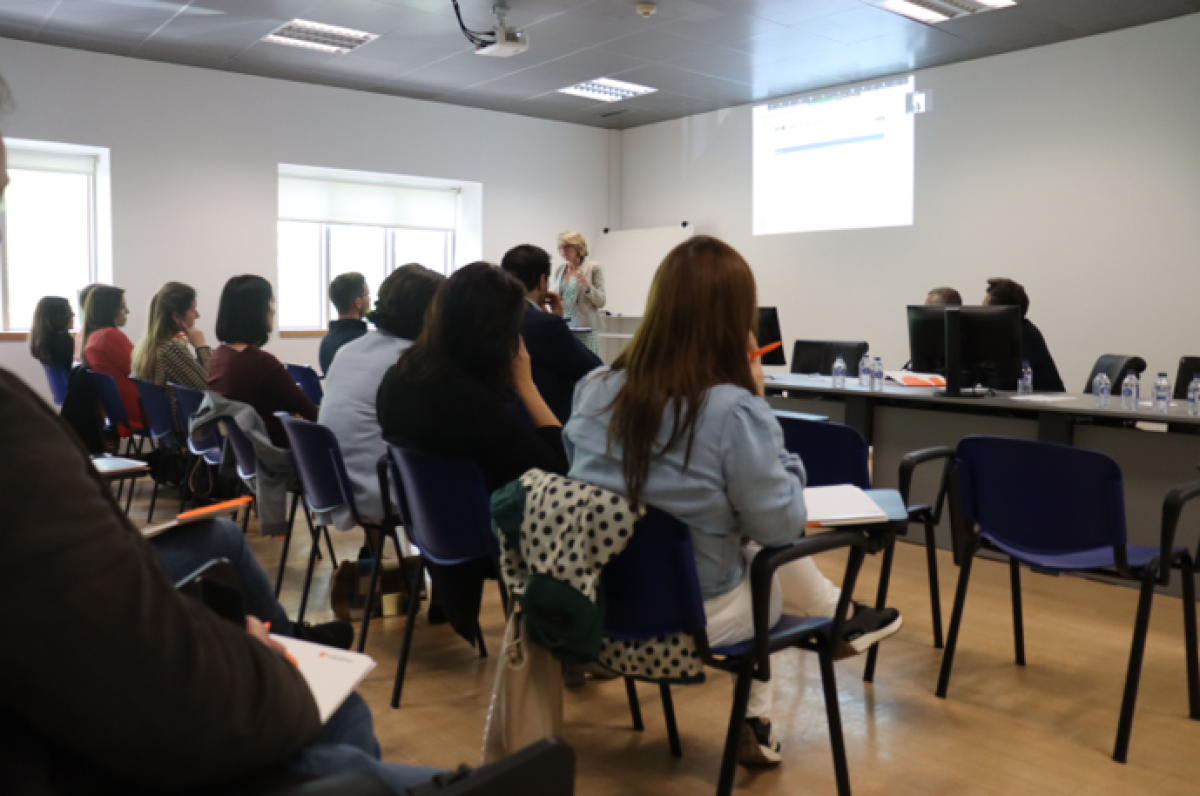
I had the privilege, recently, of speaking to a group of hospitals in Portugal, hosted by our friends, CESPU, a private university located just outside Porto. This opportunity allowed me to speak about how our CHKS accreditation programmes can support and enhance the ongoing transformation of Portugal's healthcare system, the Serviço Nacional de Saúde (SNS).
 Portugal, like many other European nations, is grappling with an ageing population and a rising prevalence of chronic diseases. These challenges, coupled with reduced funding, have prompted the implementation of Unitary Local Systems (ULS). This integrated approach aims to achieve three key goals: to develop the country’s healthcare delivery, to enhance patient care and experience at the point of delivery and improve health outcomes.
Portugal, like many other European nations, is grappling with an ageing population and a rising prevalence of chronic diseases. These challenges, coupled with reduced funding, have prompted the implementation of Unitary Local Systems (ULS). This integrated approach aims to achieve three key goals: to develop the country’s healthcare delivery, to enhance patient care and experience at the point of delivery and improve health outcomes.
The transition to integrated care is a significant shift, requiring healthcare providers to maintain high standards of safety and quality amidst the changes. This is where an accreditation programme becomes invaluable, offering a structured framework to ensure that both secondary and primary care facilities uphold these standards.
Healthcare leaders in Portugal are constantly seeking answers to those critical questions facing today’s global healthcare systems:
How do we make our hospitals and primary care providers safe, welcoming, fit for purpose, and patient-centered?
How do we prevent incidents, errors, cancellations, and waste?
How do we engage and motivate our doctors, nurses and staff to strive for continuous improvement?
How do we support our doctors and staff in delivering best-practice health and care?
At CHKS, we believe that a comprehensive accreditation programme is a powerful solution to address these challenges in Portugal. Our programme provides a robust framework of standards that:
Creates teamwork and alignment: By promoting a unified purpose and collaborative approach, our accreditations help healthcare teams work together more effectively and efficiently.
Fosters a culture of quality improvement: Hospitals and primary care settings adopting our standards often witness a cultural shift towards those traits of resilience, adaptability, and a commitment to excellence.
Supports transformational change: By integrating our programme across both hospital and primary care settings, we help organisations navigate the challenges of delivering transformational change and thrive through those periods which can often be disruptive.
A critical component of delivering a successful accreditation process is nurturing a positive culture. Culture, often described as "the way we do things around here," can profoundly impact the results and create lasting transformational change that can address the key challenges facing healthcare. Research supports this, showing that a positive culture can lead to a 33% increase in profitability, a 43% increase in productivity, and a 66% reduction in sick leave.
Using Edgar Schein’s iceberg model of culture, we can define and categorise the visible and invisible aspects of culture within healthcare and primary care settings:
Artifacts: Visible elements like logos, dress codes, and office layouts.
Espoused values: The formal values and principles an organisation claims to uphold.
Underlying assumptions: Deeply held beliefs and mindsets that truly drive behaviour.
Recognising and aligning these three components is crucial for creating impactful cultural change. Progressive healthcare providers achieve this change by ensuring their practices reflect their stated values, fostering an environment where staff feel supported and empowered to make positive transformational changes.
CHKS has been working with healthcare providers in Portugal for over 20 years, gaining deep insights into the local healthcare landscape. Our standards encompass both hospital and primary care settings, making us well-positioned to support the integrated needs of the new ULS structures.
We offer a comprehensive, integrated accreditation programme tailored to meet the specific requirements of the Portuguese healthcare landscape. Our approach ensures a streamlined and effective implementation leading to improved health outcomes and real change to address the key challenges faced by today’s healthcare leaders in Portugal.
Our role within the wider Portuguese healthcare community is aimed at supporting the healthcare in the country in addressing the key challenges faced by their healthcare leaders.
By adopting our integrated accreditation programme, Portuguese healthcare leaders can ensure their organisations remain safe, efficient, and patient-centred, leading to better health outcomes for all.
We are eager to continue this journey together, offering our expertise and support to help Portugal achieve its healthcare goals. For more details on how CHKS can assist your hospital and primary care provider, please do reach out to us: www.chks.co.uk